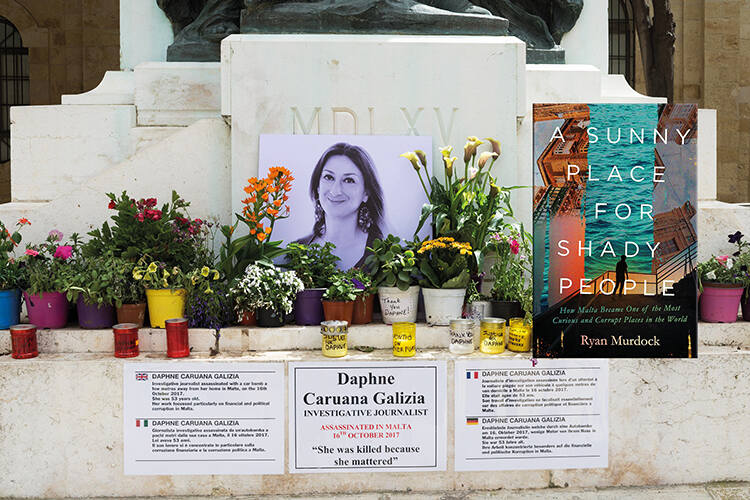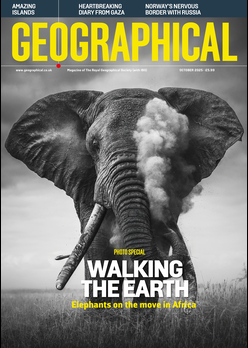
Travel writer Ryan Murdock delivers a depressing but thought-provoking story on Malta, one of the most corrupt places in the world
By David Eimer
The October 2017 murder of crusading journalist Daphne Caruana Galizia exposed Malta as one of the most corrupt countries in Western Europe. Galizia was assassinated because she was the most public and persistent critic of the organised crime and graft that flourished in Malta in the 2010s under the still-ruling Labour Party government. The order to kill Galizia is alleged to have been given by then Prime Minister Joseph Muscat’s chief of staff.
Canadian travel writer and RGS-IBG Fellow Ryan Murdock lived in Malta from 2011 to 2017 and witnessed how a country smaller than the Isle of Wight became a global hub of criminality – money-laundering, online gambling, drug and fuel smuggling – and a kleptocracy where, much to the horror of Brussels, a Maltese passport and EU citizenship can be bought for around €1 million.
Murdock and Galizia were regular email correspondents, and the final sections of his book give an exhaustive breakdown of the background of her murder and its aftermath. But Murdock also sets out to explore why Malta’s history and geography have conspired to create a culture that Galizia described as ‘amoral familism’: a family-centric and self-interested society dominated by patronage and nepotism.
It’s here that the book comes alive, as Murdock weaves his experiences of living on the island into the narrative. Murdock was inspired to move to Malta after reading Lawrence Durrell’s bucolic travel writing about the Mediterranean. The reality he encountered in the succession of villages he lived in was a fascinating fusion of Arab and Italian influences, with a superficial legacy from British colonial rule, but also a highly insular country where omerta is a way of life, just as it is in nearby Sicily.
I would have liked to read more from Murdock about Malta’s strange society and its unique position at the edge of both Europe and Africa, especially as Galizia’s death and the aftershocks it continues to create have been widely reported. But Murdock relates what is a depressing tale in a readable, well-paced fashion and offers general readers a thought-provoking introduction to a country that’s much darker than its climate suggests.




